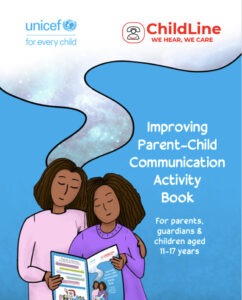Gender-Based Violence (GBV) is one of the most prevalent forms of violence in the Caribbean. GBV is a broad term used to describe violence acted upon a person due to their gender and gender role expectations within their society or culture.
Globally, experiences with GBV have been shown to not discriminate by age. Talking to your child about GBV is not something that should wait until they are older. Instead, opting to talk openly about the social issue can be a great way to positively influence and shape your child’s beliefs and attitudes towards GBV.
Correct Sexist Jokes and Negative Dialogue
Whether we like to admit it or not, words hold weight. Negatively gendered jokes and dialogues that are present within our schools and homes are used to make people feel less about themselves, making it easier for others to treat them with disrespect and even violence. Therefore, correct your child when they use words that put others down because of their gender.
Talk About Examples of how you Overcame or are Overcoming Stereotypes
Gendered stereotypes and beliefs are rampant throughout our society. Men are strong while women are weak; women are free to express themselves emotionally while men are not; men were created to lead while women were created to follow. Overcoming these stereotypes and beliefs is not easy, but if you have learnt how to overcome these things, sharing your experiences can help your child understand the issue at its core and open the space for constructive dialogue.
Talk about Victim-Blaming and Victim-Shaming
From our highest authorities to ordinary citizens, victim-blaming has been observed as a common and seemingly justified response to forms of GBV in Trinidad and Tobago. Men who are victims of GBV are blamed for not being ‘man’ enough. Women who are victims of GBV are blamed for not being alert and choosing the wrong partners. Victims are not the ones at fault, those who commit violence are. Talk to your child about victim-blaming, recount your experiences and explain to your child the dangers of victim-blaming and how it worsens the issue of GBV.
The best way to inform your child about GBV is through your words and actions. Children learn from their parents and guardians what is acceptable and unacceptable in society. By drawing a clear picture of why GBV is unacceptable, you are showing that you believe everyone is equal and deserving of respect. Also, disrespect and violence are no laughing matter but an issue that blends into the larger, more sinister picture that is GBV in Trinidad and Tobago.








